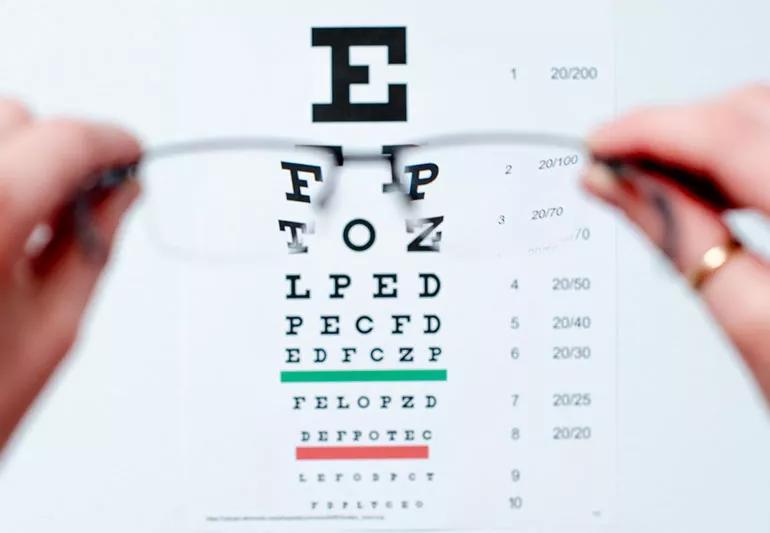Types of eye doctors and what they do

Image content: This image is available to view online.
View image online (https://assets.clevelandclinic.org/transform/0d6711bd-0767-4154-a11b-1f6f2d044ab0/opthomologistOptometrist-cmap-9630-040320-770x553-1_jpg)
eye chart seen through glasses
Whether you’re scheduling your first routine eye exam, getting new glasses or having a problem with your vision, a quick search online for eye doctors may leave you scratching your head. Is an optometrist or ophthalmologist best? And where do opticians fit in?
Advertisement
Cleveland Clinic is a non-profit academic medical center. Advertising on our site helps support our mission. We do not endorse non-Cleveland Clinic products or services. Policy
Ophthalmologist Scott Wagenberg, MD, helps answer your questions about what each type of eye doctor can do. He also offers examples of what services each may offer.
Opticians can help you select and fit your prescription eyeglasses properly. They can advise you on frames and certain types of lenses and lens coatings.
They work from orders written by optometrists or ophthalmologists. But they don’t give eye exams or write prescriptions themselves. “They do not diagnose or treat eye problems at all,” Dr. Wagenberg says.
Advertisement
The answer depends on your needs and preferences.
Exams and prescriptions. Either optometrists or ophthalmologists may perform eye exams. And either can prescribe glasses or contact lenses.
Special contact lens fittings. An optometrist is often the better option for contact lens wearers. “Optometrists often specialize in difficult contact lens fittings, and are often best for that type of examination,” Dr. Wagenberg says.
Laser and other surgeries. If you’re considering laser surgery or need other surgeries, an ophthalmologist is the right choice. “Otherwise, a good optometrist can handle what a general ophthalmologist can,” he says.
Serious eye conditions. If you have a serious condition — severe macular degeneration or diabetic retinopathy, for instance — you’ll typically see a specialist (ophthalmologist). If you don’t have any serious eye problems, the choice is really up to you.
When you have blurry vision, eye pain or “floaters,” it’s fine to see either an optometrist or an ophthalmologist, Dr. Wagenberg says.
A good eye doctor will help point you in the right direction if you need to see a different doctor or a specialist.
“An optometrist will refer you to an ophthalmologist for any difficult medical conditions such as uncontrolled eye infections, medically unmanageable glaucoma, cataract surgery, corneal transplants or retinal problems,” he says.
Ultimately, what’s best for your eye health is that you have regular exams and take steps to protect your vision.
Advertisement

Delivered every Tuesday!
Sign up for our Health Essentials emails for expert guidance on nutrition, fitness, sleep, skin care and more
Learn more about our editorial process.
Advertisement
Nocturnal lagophthalmos may be caused by damaged nerves or muscles in your face
Act quickly when a chemical or object gets in your eye
The answer depends on your condition
Plus how pools, lakes and sprinklers affect your eyes
Find out what to treat yourself and when to get help
Be sure to protect your eyes from UV light and hazardous materials
The Short Answer from an optometrist
It’s critical to have the proper eyewear if you plan to look up at the sun, especially during the total solar eclipse on April 8, 2024
Type 2 diabetes isn’t inevitable with these dietary changes
Applying a hot or cold compress can help with pain
Pump up your iron intake with foods like tuna, tofu and turkey